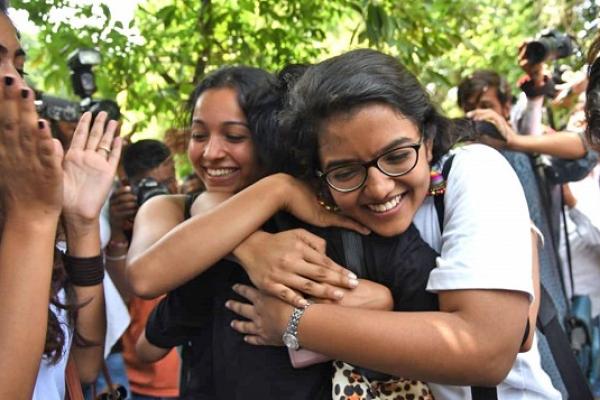
On September 6th, 2018, the Supreme Court of India made the historic decision to repeal, Section 377 of the Indian Penal Code, the ban on same-sex relationships. The British colonial-era statute, Section 377 of the Indian Penal Code, made sexual behavior “against the order of nature” illegal and punishable by imprisonment.
Decriminalization marked a significant step forward in the recognition and promotion of the human rights of LGBTQI people and queer politics in India. Suparna Bhaskaran will talk about her work on some of the debates in the aftermath of this decision as it pertains to issues of anti-discrimination, the linkages between social, economic, and political rights for LGBTQI people in India, and diasporic solidarity
Suparna Bhaskaran has a background in Cultural Anthropology, Public Policy, and Gender/Sexuality Studies. She has worked in the academy, government, and community organizations.
Her multi-state work has documented how “wealth stripping” practices (such as subprime and predatory lending, racial and gender segregation, low-wage/benefit work, and unfair debt) systematically takes a toll on low to moderate wealth/income women of color and white women in US cities. The resulting report was used to appeal to the Consumer Financial Protection Bureau to highlight the practice of Pinklining (where women of color and low to moderate income/wealth women were/are targeted by predatory and subprime lenders).
She is a policy researcher and was most recently with the Haas Institute for a Fair & Inclusive Society, at the University of California, Berkeley, where her work explored the relationship between public health and wealth in cities and communities. Her work focused on the city of Detroit and its communities, within the context of the restructuring of Detroit’s Great Lakes Water Authority, water inequities, austerity policies, and shrinking social safety net programs for its residents. She has also worked for the State of Ohio as a health policy researcher, and community educator, particularly in relation to affordable healthcare and safety net programs.
She taught and directed Gender and Sexuality Studies Programs at Antioch College, Ohio Wesleyan University and Agnes Scott College. Her teaching and research areas included: the global economy, work, and racial formation; health, medicine, and justice; and transnational/global feminist social movements.
Select Publications
2017. Public Health & Wealth in Post-Bankruptcy Detroit, Just Public Finance Research Series, The Haas Institute for a Fair & Inclusive Society, University of California Berkeley.
2016. Pinklining: How Wall Street's Predatory Products Pillage Women's Wealth, Opportunities, and Futures, ACCE Institute.
Made In India: Decolonizations, Queer Sexualities, Trans/national Projects, Comparative Feminist Studies, Palgrave Macmillan, 2004.
